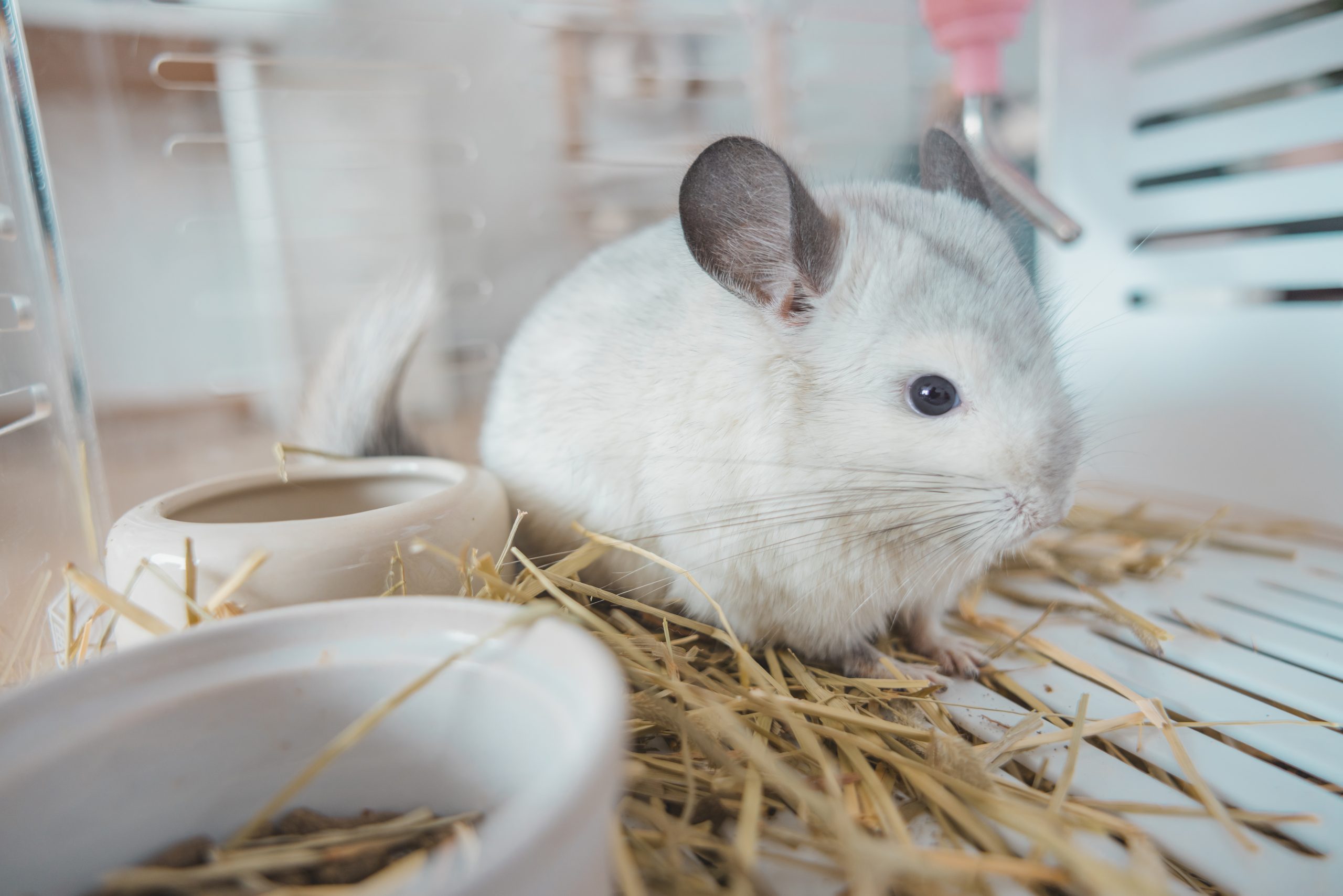Chinchillas are small, cute, and furry animals that are becoming increasingly popular as pets. They are native to the Andes

Chinchilla cute pet fur white hair fluffy and black eyes. Close-up animal rodent adorable tame ear grey looking at camera. Feline mammals are fluffy and playful.
Housing
The first thing you need to consider when getting a chinchilla is their housing. Chinchillas require a large cage that is at least 24 inches long, 24 inches wide, and 24 inches high. The cage should be made of wire mesh or metal bars, and the spacing between the bars should be no more than 1 inch. Chinchillas are excellent climbers, so make sure the cage has multiple levels, ramps, and platforms. The cage should also have a solid floor, as wire floors can cause foot injuries.
Bedding
The bedding is another crucial aspect of chinchilla care. Chinchillas require a soft and absorbent material for bedding, such as aspen shavings or kiln-dried pine. Avoid using cedar or any other aromatic wood shavings as they can be harmful to chinchillas’ respiratory systems. You should also avoid using paper-based bedding as chinchillas tend to chew on it, which can cause digestive problems.
Diet
Chinchillas are herbivores, and their diet should consist mainly of hay, fresh water, and pellets. Chinchillas require a constant supply of hay, which should make up about 80% of their diet. Timothy hay is the best type of hay for chinchillas. You can also give your chinchilla fresh vegetables, such as carrots, celery, and broccoli, but only in small amounts. Pellets should be given in small amounts, and they should be high in fiber and low in fat.
Water
Water is another essential aspect of chinchilla care. Chinchillas should have access to fresh, clean water at all times. You can use a water bottle or a water bowl, but a water bottle is preferred as it is less likely to get contaminated with bedding material. Make sure to clean the water bottle or bowl daily and refill it with fresh water.
Exercise
Chinchillas are active animals and require regular exercise. You should provide your chinchilla with a large exercise wheel that is at least 14 inches in diameter. Avoid using wire mesh wheels as they can cause foot injuries. You should also provide your chinchilla with toys to play with, such as wooden blocks and tunnels.
Grooming
Grooming is an essential aspect of chinchilla care. Chinchillas have very dense fur, which can get matted if not groomed regularly. You should provide your chinchilla with a dust bath twice a week. A dust bath is a container filled with chinchilla dust, which is a fine powder that helps to remove excess oils and dirt from the fur. You should also brush your chinchilla’s fur regularly with a soft-bristled brush to prevent matting.
Health
Chinchillas are generally healthy animals, but they are prone to a few health problems. One of the most common health problems in chinchillas is dental problems. Chinchillas have constantly growing teeth, and if their teeth become too long, it can cause pain and discomfort. You should provide your chinchilla with wooden chew toys to help wear down their teeth naturally. You should also monitor your chinchilla’s teeth regularly and take them to the vet if you notice any problems.
In conclusion, chinchillas are fascinating pets that require specific care to thrive. Proper housing, bedding, diet, water, exercise, grooming, and healthcare are all essential aspects of chinchilla care. Chinchillas can live up to 15 years, so it’s crucial to provide them with a safe and healthy environment.
It’s also important to note that chinchillas are social animals and do better in pairs or groups. If you plan to keep more than one chinchilla, make sure they are compatible and have enough space in their cage.
Lastly, remember that chinchillas are delicate animals that require gentle handling. Avoid picking them up by their tail or scruff, as it can cause injuries. Instead, scoop them up gently with both hands and support their body.
In conclusion, if you are considering getting a chinchilla as a pet, make sure you understand their specific needs and requirements. With proper care and attention, chinchillas can make excellent pets and bring joy and entertainment to your life.
